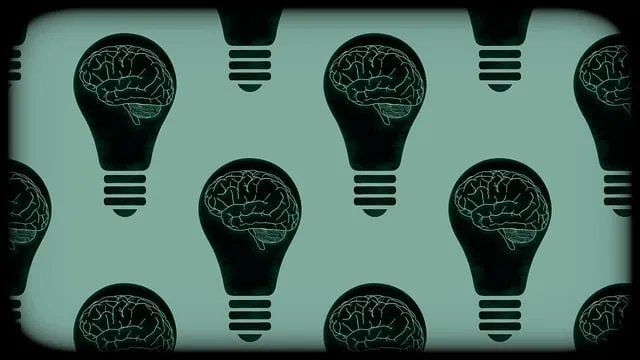The Highlands Ranch Kaiser Permanente Behavioral Health Center aims to improve mental illness diagnosis accuracy by addressing challenges such as limited assessment time, diverse psychological conditions, and inconsistent coping skills integration. They propose solutions including enhanced training, standardized tools, patient-centered care models, and continuous improvement. By focusing on mental health awareness, cultural sensitivity, and coping skills development, the center ensures precise and personalized treatment plans for all patients.
Mental illness diagnosis accuracy is paramount for effective treatment and recovery. This article delves into efforts to enhance diagnostic precision at the Highlands Ranch Kaiser Permanente Behavioral Health Center, a leading mental healthcare provider. We assess current challenges and gaps in diagnosis, examining factors contributing to misdiagnosis or delays. By exploring advanced assessment techniques, technology integration, evidence-based practices, and multidisciplinary collaboration, we present innovative strategies for improvement. Continuous quality improvement through feedback mechanisms and patient outcome measures ensures the center remains at the forefront of mental health care.
- Assessing the Current State: Challenges and Gaps in Mental Illness Diagnosis at Highlands Ranch Kaiser Permanente Behavioral Health Center
- – Examining the factors contributing to misdiagnosis or delayed diagnosis
- – Reviewing existing tools, procedures, and training for improvement areas
Assessing the Current State: Challenges and Gaps in Mental Illness Diagnosis at Highlands Ranch Kaiser Permanente Behavioral Health Center

The Highlands Ranch Kaiser Permanente Behavioral Health Center has been at the forefront of efforts to improve mental illness diagnosis accuracy. However, despite its advanced resources and dedicated professionals, challenges remain. One significant gap is the limited time allocated for patient assessments, often leading to rushed diagnoses that may not accurately reflect an individual’s complex psychological landscape. This problem is exacerbated by the diverse nature of mental health conditions, which can manifest in varied ways across different populations.
Additionally, the center faces challenges in integrating coping skills development and anxiety relief strategies into standard treatment protocols. While Mind Over Matter principles have shown promise in enhancing patient outcomes, their consistent application varies among healthcare providers. Addressing these gaps requires a multifaceted approach, including enhanced training for staff, standardized assessment tools, and patient-centered care models that prioritize individualized support and continuous improvement.
– Examining the factors contributing to misdiagnosis or delayed diagnosis

Misdiagnosis or delayed diagnosis of mental illness can often stem from various complex factors. One significant contributor is the diverse nature of psychological symptoms, which may overlap with physical health conditions. This complexity demands a comprehensive evaluation process at venues like the Highlands Ranch Kaiser Permanente behavioral health center. Here, professionals must consider not only the patient’s reported experiences but also their medical history and overall lifestyle.
Additionally, cultural sensitivity in mental healthcare practice plays a pivotal role in improving diagnosis accuracy. Different cultural backgrounds can influence how individuals perceive and express their emotional states. The Highlands Ranch Kaiser Permanente behavioral health center, through initiatives aimed at enhancing Mental Health Awareness and promoting Coping Skills Development, strives to bridge these gaps. By recognizing and understanding these cultural nuances, healthcare providers can avoid assumptions and biases that may lead to misdiagnosis, ensuring patients receive appropriate and timely treatment.
– Reviewing existing tools, procedures, and training for improvement areas

At the Highlands Ranch Kaiser Permanente behavioral health center, efforts to enhance mental illness diagnosis accuracy are ongoing. This involves a comprehensive review of existing tools, procedures, and training protocols. By meticulously examining each component, the center aims to identify areas for improvement that can lead to more precise and timely diagnoses. The goal is to ensure patients receive the most effective treatment plans tailored to their unique needs.
Through this review process, the Highlands Ranch Kaiser Permanente behavioral health center seeks to build upon existing strengths while addressing any shortcomings. This includes focusing on developing confidence-boosting strategies for healthcare professionals, integrating self-care routine development for better mental health as a cornerstone of patient care, and cultivating inner strength through specialized programs. These initiatives collectively strive to elevate diagnostic standards, ultimately enhancing the quality of care provided at the center.
The assessment of mental illness diagnosis accuracy at Highlands Ranch Kaiser Permanente Behavioral Health Center reveals significant challenges and gaps that demand immediate attention. By critically examining factors contributing to misdiagnosis and delayed diagnosis, along with reviewing existing tools, procedures, and training, the center can implement targeted improvements. Through these efforts, not only will patient outcomes be enhanced but also the overall effectiveness of mental health care at Highlands Ranch Kaiser Permanente Behavioral Health Center.






